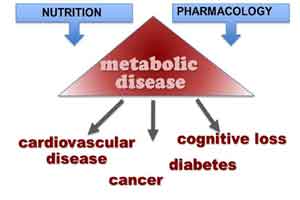- Home
- Editorial
- News
- Practice Guidelines
- Anesthesiology Guidelines
- Cancer Guidelines
- Cardiac Sciences Guidelines
- Critical Care Guidelines
- Dentistry Guidelines
- Dermatology Guidelines
- Diabetes and Endo Guidelines
- Diagnostics Guidelines
- ENT Guidelines
- Featured Practice Guidelines
- Gastroenterology Guidelines
- Geriatrics Guidelines
- Medicine Guidelines
- Nephrology Guidelines
- Neurosciences Guidelines
- Obs and Gynae Guidelines
- Ophthalmology Guidelines
- Orthopaedics Guidelines
- Paediatrics Guidelines
- Psychiatry Guidelines
- Pulmonology Guidelines
- Radiology Guidelines
- Surgery Guidelines
- Urology Guidelines
Infertile men at increased risk of metabolic diseases

London: Men with fertility problems are at increased risk of developing metabolic diseases such as osteoporosis that makes bones brittle or diabetes, warns a new study.
The findings were published in the journal Clinical Endocrinology
The group examined 192 men with a low sperm count, and compared them with 199 age-matched controls.
They compared sex hormone levels between the groups, as well as other markers such as bone mineral density (which indicates risk of osteoporosis) and HbA1c (a biomarker for diabetes).
Men with poor semen quality have been shown to have a decreased life expectancy, but the causes are unknown and no biochemical markers or prevention strategies have been developed.
Now a group of Swedish researchers have measured the levels of sex hormones and other biochemical parameters in infertile men, and have shown that many of them are at risk of hypogonadism (low levels of sex hormones) as well as signs of metabolic disease and osteoporosis.
"We found that a significant proportion of men from infertile couples show biochemical signs of hypogonadism. This may be affecting their fertility, but they can also serve as early warning signs for metabolic diseases in later life, such as osteoporosis or diabetes," said lead researcher Aleksander Giwercman from Skane University Hospital in Malmo, Sweden.
The findings were published in the journal Clinical Endocrinology
The group examined 192 men with a low sperm count, and compared them with 199 age-matched controls.
They compared sex hormone levels between the groups, as well as other markers such as bone mineral density (which indicates risk of osteoporosis) and HbA1c (a biomarker for diabetes).
They found that one third of men under 50 with fertility problems, had biochemical signs of low levels of the sex hormone testosterone.
This was seven times as common as amongst controls. These men also had low bone density especially in men with low testosterone leaving them at increased risk of fractures and osteoporosis.
Hypogonadal men also showed biochemical signs of elevated glucose, and greater signs of insulin resistance - indicating a tendency towards diabetes, the study said.
diabeteshypogonadismjournal Clinical Endocrinologymetabolic diseasesosteoporosisSkane University Hospital
Source : IANSNext Story
NO DATA FOUND

Disclaimer: This site is primarily intended for healthcare professionals. Any content/information on this website does not replace the advice of medical and/or health professionals and should not be construed as medical/diagnostic advice/endorsement or prescription. Use of this site is subject to our terms of use, privacy policy, advertisement policy. © 2020 Minerva Medical Treatment Pvt Ltd